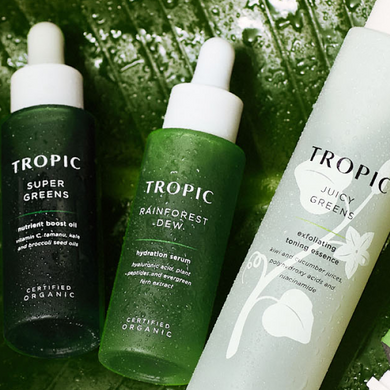Ah, the dreaded blemish. The great equaliser of teenagehood, the inconvenient companion of school photo day, and – in more recent years – the consequence of most back-to-back Christmas party marathons or month-long birthday bottomless brunches. But breakouts aren’t always the result of mistreating our skin or monthly hormone fluctuations, they’re often an upshot of trying out a new product – also known as skin purging.
See our skin – like all good control freaks faced with a spontaneous change of plan – gets a bit stressed out when we switch up our routine. Contented and comfortable with the natural rhythm of everyday habits, our body’s best security guard doesn’t take too kindly to unfamiliar guests at routine gatherings, and our skin isn’t one to suffer in silence (thinking of you, our dear livers).
“It takes the average adult skin cell 28 days from formation deep within the dermal layers to make its way to the skin’s surface before shedding,” explains Sasha Dhoat, consultant dermatologist at Stratum Dermatology Clinics. “Skin purging is basically anything which causes irritation to the skin by reducing that normal 28 day cycle of cell turnover.”
“While both purging and normal breakouts may appear the same, skin purging is often triggered by a change in treatment of the skin which speeds up a breakout, so can end up being beneficial in the long run when you’re clear of all the gunk, for want of a better word,” Genevieve Knodell, aesthetic therapist tells me.
“So treatments and skin care products like retinol and AHAs – which resurface and stimulate cell turnover – are prime examples of products which might speed up the purging of all the ‘bad stuff’ below, but things should settle with continued use.”

Skin purging vs. acne, what's the difference?
“Unfortunately, avoidance of acne or regular breakouts can be tricky, as often acne is down to genetics or hormones,” says Dr Adam Friedmann, consultant dermatologist. “Acne can be hereditary and is known to run in families, so if your mother and father suffered with acne, you’re more likely to.”
“Acne is described as an inflammatory skin condition caused by a combination of overactive grease glands, hormones and bacterial infection,” Friedmann explains. “It affects the oily and hair-bearing areas such as the face, chest and back. It’s one of the most common skin conditions in the UK but severity varies, so although it can be frustrating, it’s treatable and completely normal.
“Beauty products can actually make adult acne worse. Natural moisturisers, sunscreen and especially thick or oily makeup can clog pores. If you're having a breakout, opt for oil-free alternatives to your typical creams and apply lightweight makeup products sparingly. If you suffer from acne, it’s best to speak to your doctor or dermatologist to find the treatment right for you, as every case is different.”
To determine whether your skin is purging or having a pure and simple breakout, take a look at your products. The purge can be prompted by something as subtle as one particularly potent exfoliation, or as overt as an in-clinic procedure.
If you like to mix up your products a lot month on month, try keeping a skincare diary. You can then measure whether your stressed skin is simply the result of chemical exfoliants flexing their resurfacing muscles, or whether your skin has taken a permanent dislike to one of your new cosmetic companions.
Either way, if you spot the signs of an impending purge, being gentle and patient with your skin is always the best solution – leave it to have its outburst and don’t aggravate it further with harsh chemicals. Soon enough your skin will see that – as with most positive change – it just takes a little getting used to.



